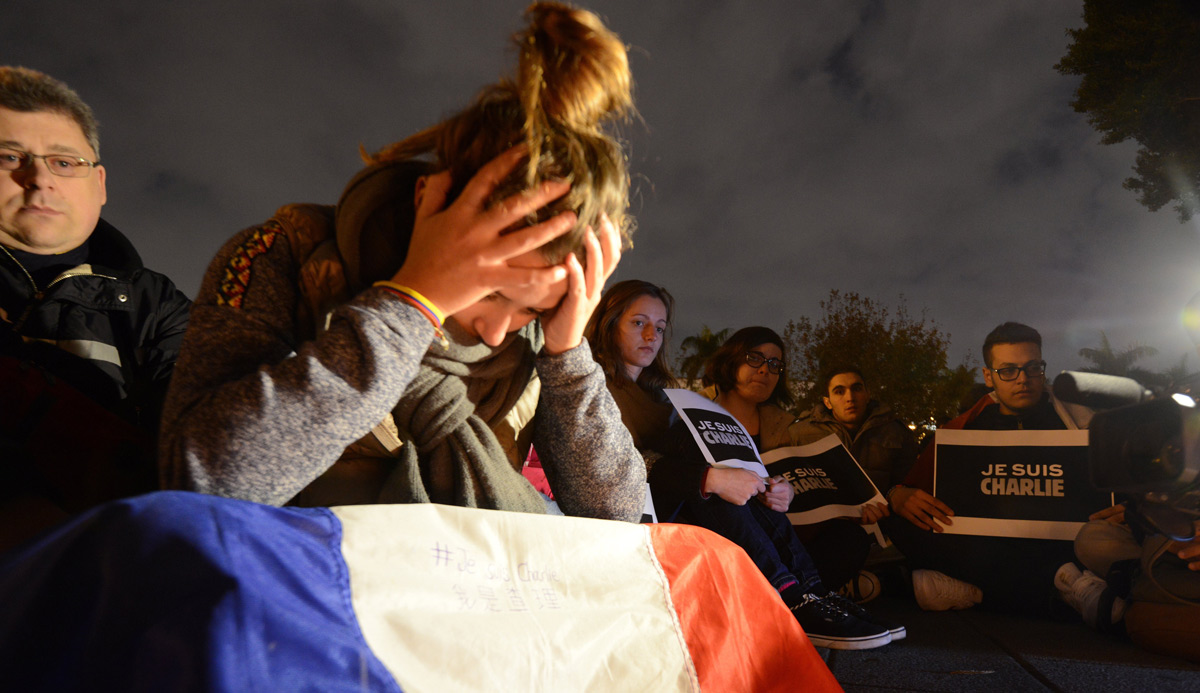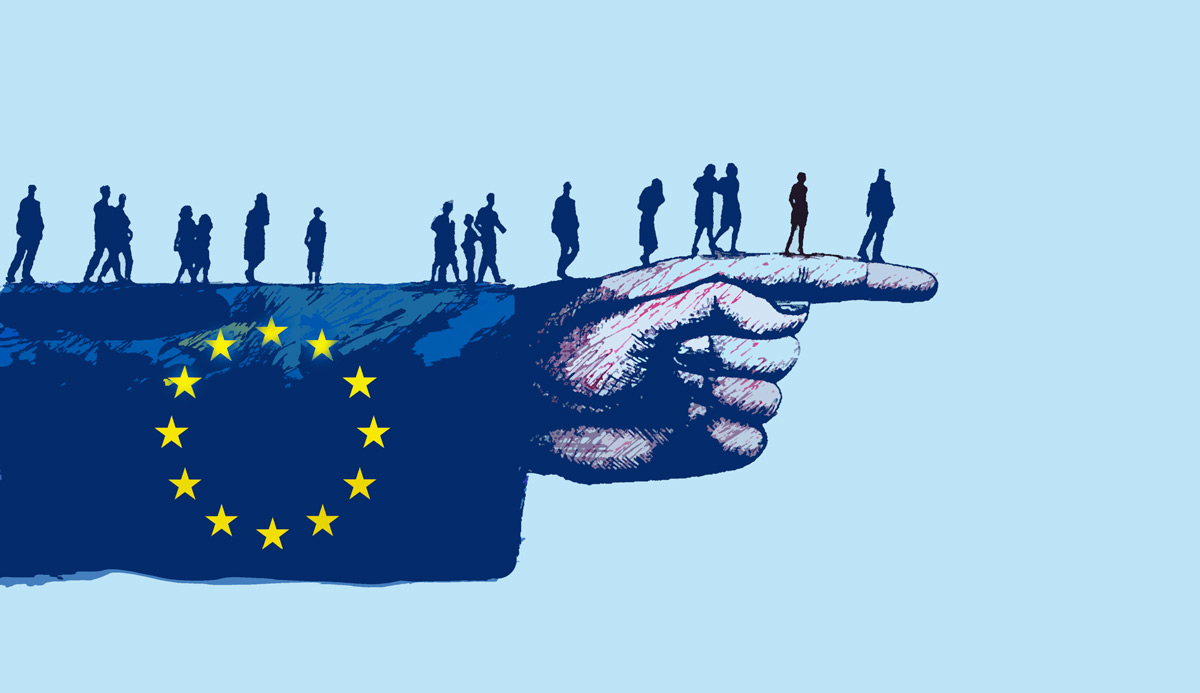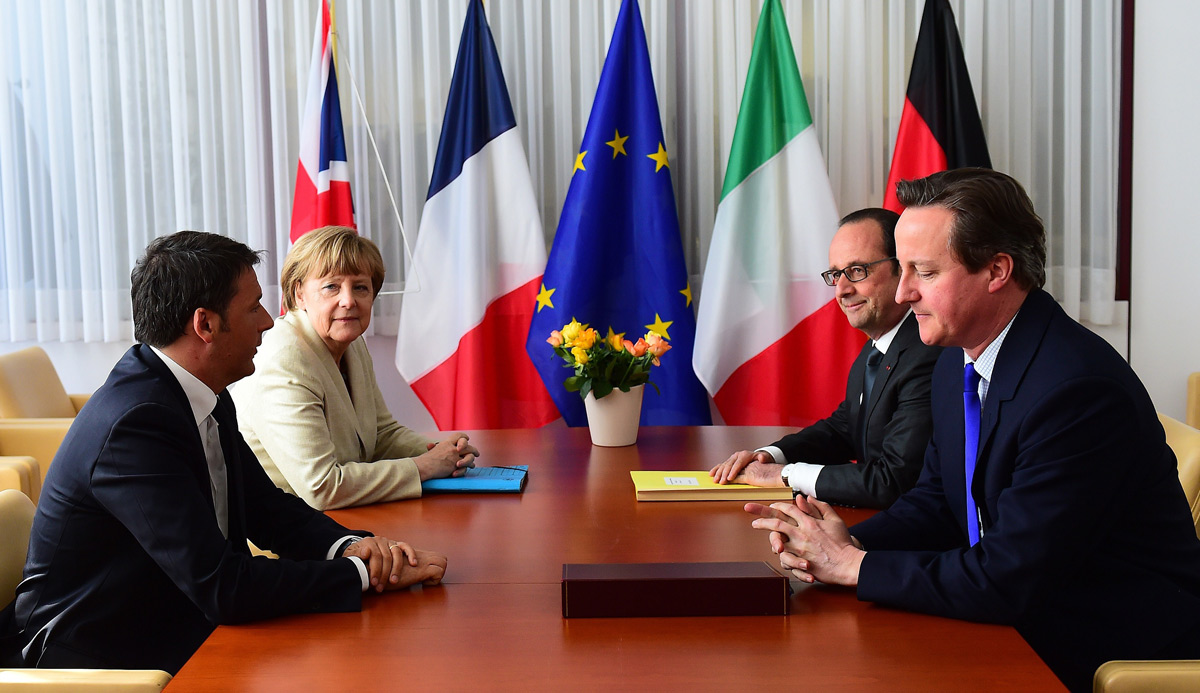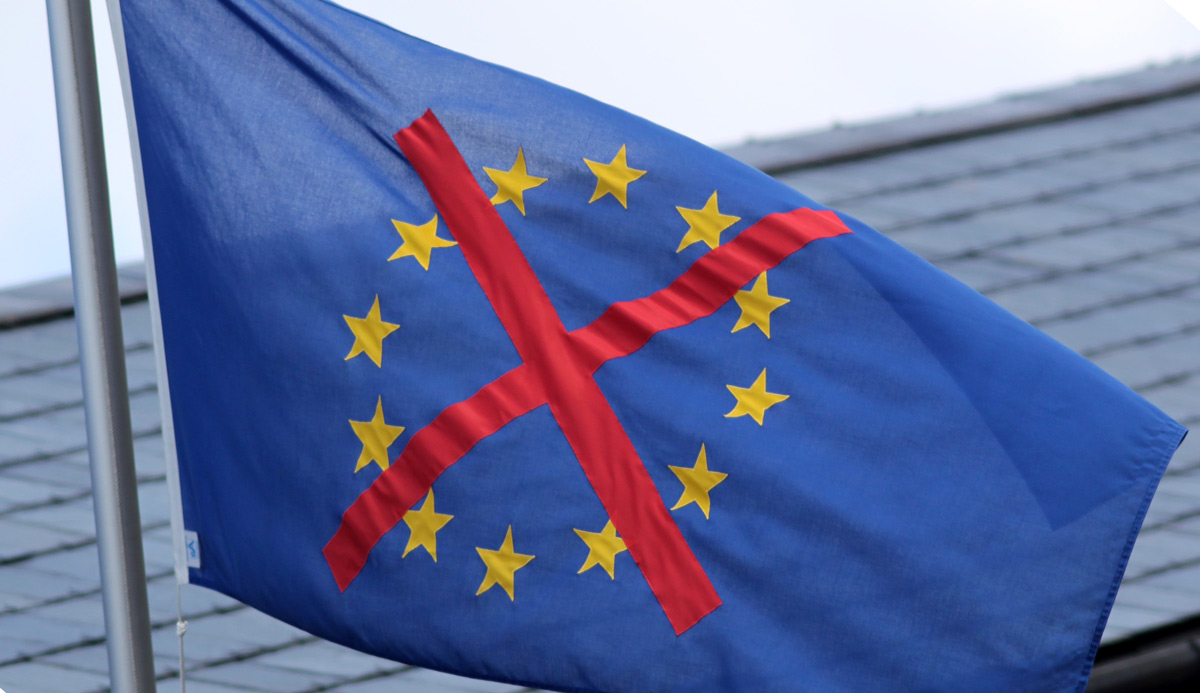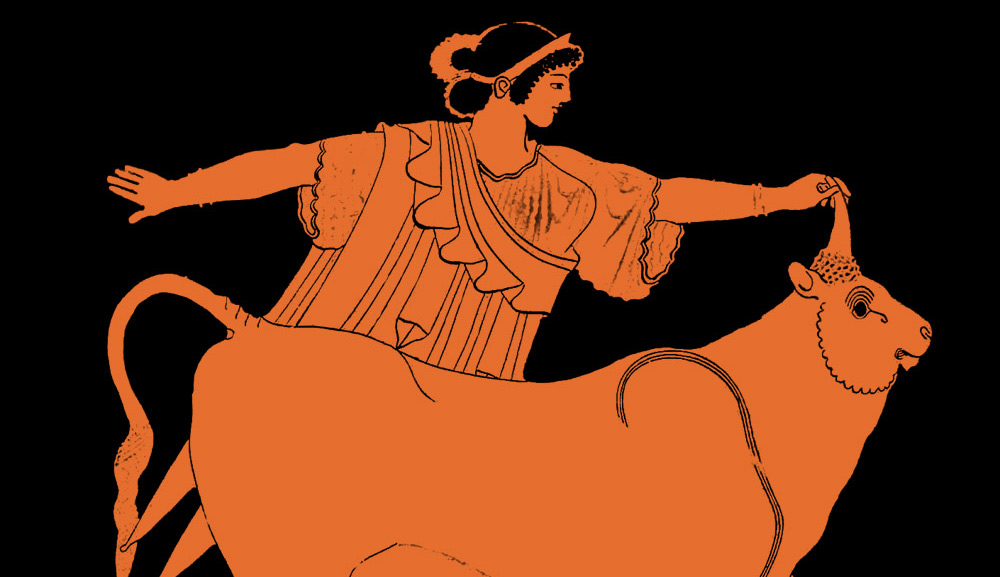Daniel Johnson’s question—“Does Europe Have a Future?”—appears increasingly to be the question of the hour. Of course, it has been asked before, and many times over. The specter of European failure has been our civilization’s constant companion for a century or more, certainly at least since the horrors of World War I. Yet in our own historical moment the question seems to have achieved a kind of ripeness in a Europe that looks too exhausted either to reproduce or to defend itself.
Still, much depends upon what one means by “Europe.” Is it the ambitious but fraught project of welding the continent into a fluid, borderless, ever more tightly unified economic, political, and cultural union, held together by an abstract invented supranational identity, a common currency adorned with generic secular symbols, and the tentacles of a vast administrative magistracy headquartered in Brussels, and intended to serve as a disinterested substitute for obsolete historical conventions or customs? That is one thing.
Or does “Europe” refer to a certain rich, complex way of life, along with the values and institutions and forms of consciousness that have made that way of life possible: free and self-governing institutions, constitutionally limited governments, prosperity-generating economies, equality before the law, protection of fundamental human rights, freedom of expression and of rational inquiry and imagination, recognition of the dignity of the individual person, a high regard for criticism and self-criticism, and a glorious and cosmopolitan heritage of ideas, stories, artifacts, sciences, languages, faiths, cuisines, literatures, historical consciousnesses, and arguments, all laid out before its heirs as if on a single vast table stretching from antiquity to tomorrow? That is something else again.
The two meanings of “Europe” are obviously closely related, but they are by no means the same, and it is a grave error to conflate them. In fact, the first, newer understanding of “Europe”—the one encapsulated in the initials EU—has in the end necessarily come about at the expense of the second, older one, and the two have inevitably become antithetical. It should by now be evident why this is so. The deep rationale for the EU project lay in a particular conception of the lessons of modern European history—namely, that the very existence of the modern nation-state was to blame for the rivalries and savage wars that in the 20th century wreaked such havoc upon the European continent and much of the rest of the world.
This very influential but very flawed simplification, as Daniel Johnson rightly notes, has never received the searching criticism and correction it deserves. But even if the nation-state’s inherent menace could be made plausible and demonstrable, it would still fail by miles to take the measure of the lost benefits that have ensued from the consequent decision to disregard national polities and cultures and to abandon the forms of sovereignty and the institutions of self-rule that have been essential to the perpetuation of such nations.
The current migration crisis has been a startling reminder of those ignored tradeoffs. Such a crisis could not have occurred without the weakening of the nation-state imposed by the postwar order. Indeed, the crisis has already forced a de-facto flight from the “Schengen” ideal of a borderless Europe, and in at least some quarters seems to be bringing on an uneasy recognition that there may be no workable substitute for the particularisms inherent in l’Europe des patries (the Europe of nations, in the Gaullist formulation cited by Johnson): an older way of understanding and mapping Europe that is more in accord with the shape of human sentiment. Is it really so surprising that Europeans, qua Europeans, are not convinced they are prepared to defend Europe, qua Europe? Or that a steadily growing number of Germans, qua Germans, are mad as hell about the transformation of their culture being imposed upon them by their guilt-ridden elite leaders, and are determined to stop it?
It would have been nice for Europe’s leaders, and our own, to have seen all of this coming without having to go through a wholly predictable disaster, one that has dangerously polarized public sentiment and given, as Johnson writes, legitimate running room to some of the most dangerous elements in West European societies. But no such luck. The mirage of a united Europe, an idea hatched by the most advanced minds, is now what Europe has to find its way past, if it can. In that sense, the stunningly irresponsible action of the German chancellor Angela Merkel in opening her country’s doors to a million migrants offers itself as a kind of reductio ad absurdum, a proof by negative example that the new Europe, left to its own logic, will very rapidly turn into something quite different from what we have known as Europe.
Will that something entail what Johnson calls an Islamization of Europe? Or can there be, in his hopeful alternative, a Europeanization of Islam? I am inclined to doubt either of these will happen. Instead, I suspect we will see something far more muddled and indecisive, varying greatly from place to place, with the norm being mutual suspicion and unease. Indeed, it to everyone’s advantage that the choices not be allowed to become so stark.
To me, the best outcome for the Europeanization of Islam is a steady process by which Muslim immigrants become assimilated into particular national cultures. In contrast to Johnson, however, I don’t think that theological innovation, even if consciously undertaken by respected Islamic authorities, will suffice or be effective on its own. The Americanization of Roman Catholicism in the 19th and 20th centuries did not take place because of theological innovation but because of the American insistence upon assimilation, which gradually created a society in which Protestants and Catholics became comfortable with each other. A comparable assimilation of Muslims in today’s Europe will not materialize without the existence of cohesive and self-confident national cultures that are willing to do the hard work of turning immigrants, particularly low-skilled and uneducated ones, into full-fledged members of their adoptive society.
Otherwise, what precisely are the current migrants supposed to assimilate themselves into? Is there to be an EU catechism? “European culture” is real, but only when mediated by membership and participation in particular national cultures. Ironically, it is precisely the homogenizing effects of the EU and its official commitment to abstract secularism and open borders that have heightened and will continue to heighten the contradictions facing Muslim immigrants and thus continue to make things worse. Immigrants should not be required to sell their souls in order to become Europeans; they do deserve some clear indication of what reasonable price is being asked of them. The pre-secular variety found in the older Europe des patries, with suitable modifications, offers a better model for the kind of assimilation of immigrants into national cultures that can, in the end, make them fully Europeans, with a Europeanized practice and understanding of Islam following suit. But that will not happen overnight.
In closing I want to touch on another, integral aspect of Johnson’s acute analysis: the question of liberty and Judaism, the relationship between the two, and what that relationship means for the health of Western civilization.
Johnson sees the history of the West as a series of intellectual revolutions, each productive of a “particular kind of liberty”—from the freedom of the Church, to the freedom of the individual, freedom of conscience, freedom of inquiry, economic freedom, political freedom, and finally the “explosion of modernity that has rendered all previous assumptions obsolete.” I would have liked him to spell out what he means by that explosion, but my guess is that he has in mind the sort of postmodern liberty established by the U.S. Supreme Court in declaring “the right to define one’s own concept of existence, of meaning, of the universe, and of the mystery of human life.”
Such a liberty, taken to its limit, renders supreme the individual’s will and preferences, superior to all conceptions of nature or God or any other extra-personal standard of judgment, including family and polity. This form of freedom is false, destructive, and unsustainable, a form against which the teachings of the Hebrew Bible stand opposed, adamantly, consistently, and often angrily, condemning it as both fraudulent and sinful. Indeed, the Hebrew Bible can be read as an extended polemic against almost everything that modernity’s “explosion” has produced. Again and again, we are shown that the overreaching of arrogant man will be slapped down and rendered nugatory. Instead, Psalm 119:45 declares that “I will walk at liberty, for I have sought Your teachings.”
The high and reverent valuation placed upon law—or, more properly, the Law—in the Jewish tradition is arguably the greatest of its gifts to Western civilization. It is inseparable from the Jewish conception of freedom, upon which, as upon human ambition and perversity, the Law operates as an indispensable check. Even more so than Christianity, Judaism insists that we understand freedom as meaningful only when first constrained and then properly directed. That is the purpose of the Law—to lead us into the paths of righteousness wherein we may become truly free.
And here I would respectfully disagree with Johnson’s unqualified statement that “the sacred history of ancient Israel is the story of the pursuit of liberty.” I do not think so. I think it was, and is, the story of the pursuit of righteousness, a sprawling narrative that includes a great many revelatory vignettes of the fallible men and women who are our fathers and mothers while inculcating the central principle that liberty arises from obedience to God’s Law.
To my mind, that sense of freedom’s inadequacy as an autonomous realm of activity, a sense so central to Jewish thought and practice, and to the Jewish understanding of the human person, is one of the things we most desperately need to recover in our confused postmodern age. A society whose highest authorities insist upon the principle that each of us is entitled to define the meaning of life for himself is on the road to becoming a society, like the one we now see in Europe, lacking the will, or the heart, to defend and to reproduce itself.
More about: Europe, Politics & Current Affairs
